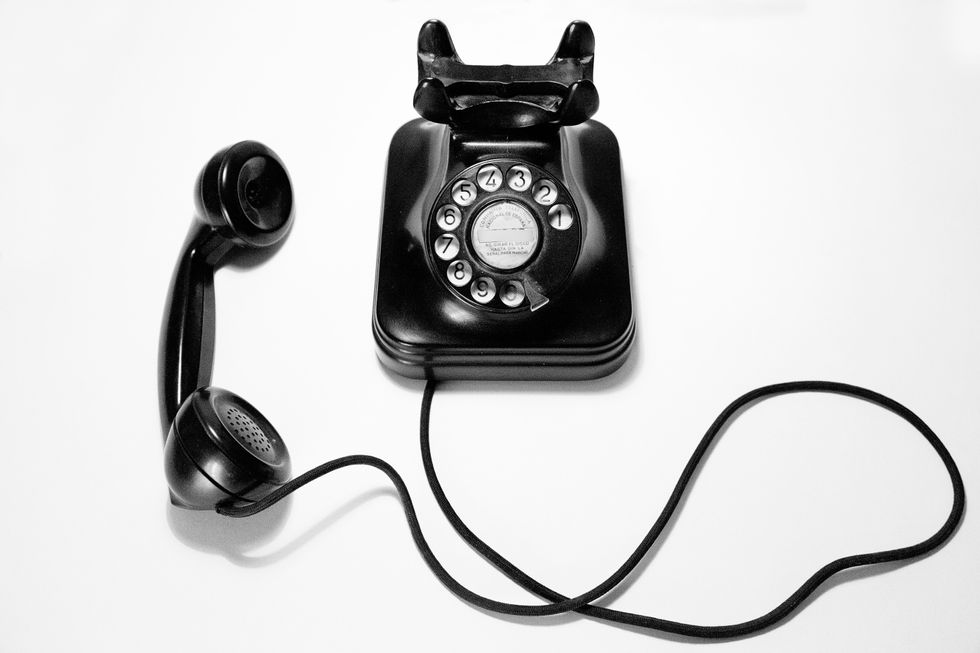
"Man! That interview went BAD!"
In my previous installment, I presented some surefire ways to ensure your resume never lands you an interview. But say that you followed each "recommendation" and still ended up being called by a recruiter or headhunter.
Fear not. There are plenty of ways this whole thing can still go sideways. Even better—many of them are totally within your control!
Again, don't get me started on irresponsible employers. Trust me—I get it. It is tough not to laugh at someone asking you which animal you would like to be reincarnated after your demise. They undoubtedly find valuable insights into such questions. They just never tell us what that is.
The grandstanding, self-important manager that tries to make candidates feel like dirt. The interviewer paying more attention to their cell phone than you. The recruiter promptly going through a checklist but making no attempt to understand you as a person. Yes, there are plenty of ways employers fail candidates.
But then, there are also plenty of ways candidates fail prospective employers. Here are some of them.
"Your Call Is Important To Us"—Or The Art Of Keeping Recruiters Waiting

Plea"Please hold on while I process your call"
Photo by Quino Al on UnsplashWe are living in a world of instant communications. Whether via email, social media, or just plain old phone calls, you can quickly get a hold of people over any distance.
That has influenced our social norms, including in recruiting. In the past, it was probably OK for an employer to wait a few weeks for all these beautiful resumes printed—or better, typed!—on parchment paper to come in their mailbox.
No more. Today, recruiters send an email and expect answers within hours, not days, and certainly not weeks. Business doesn't wait!
So, why are so many candidates not answering promptly?
For some, it is truly not their fault. Unfortunately, there is something out there called spam (e)mail, which led the providers of this world to devise a series of algorithms to keep these from reaching your inbox. But sometimes, they are scrubbing your account a bit too clean!
I know. It happened to me before. I ghosted a wannabe employer. Fortunately, they were good sports and sent me a reminder. It doesn't always happen, however.
For others, it is hesitancy. "OMG, what should I answer? What will they say if my answer is not outright Shakespearian in quality?" The natural tendency is then to wait to ABOLUTELY ensure the answer is PERFECT. So, the answer gets delayed.
And then there are even other candidates out there that feel employers need to wait in turn.
But again, our relationship with time has changed. Time is compressed, our attention span has shrunk, and our patience is now minimal. It is true of pretty much anyone—including employers.
If your goal is to fail, delaying is an excellent option.
Alternative Interviews Are For Chumps!
Employers are swamped with emails. There are ads for services that promise to PLASTER your resume all over the place.
As a result, many employers are implementing alternative methods of screening candidates. After all, interviews aren't cheap: they monopolize employees' time, so they have a real opportunity cost.
Some methods, I cannot condone. Artificial intelligence asking you questions and analyzing your reactions? No thanks, I will pass.
But is it too much to ask an interviewee to demonstrate he or she really possesses the skills they claimed on their resume? Is it excessive to ask for a short essay, especially in our day and age when so many decided that cover letters are overrated? Is a request for a presentation of one organization's products or services so you can showcase your research and presentation skills shameful free labor?
Note that when it is done right, these can be great tools to land the job. You may not be a premier schmoozer that can talk his or her way into any job, but a clear, thoughtful text may carry great weight with a prospective manager. Who knows, that person may feel that it is a reflection of your level of professionalism.
It may enable you to stand out simply because so many balk at these exercises. They may simply ask for an interview or even not take the assignment seriously, as reflected by the poor quality of their output.
Isn't that all a way for companies to extract free labor? I guess that is a way to see it. Here's another: the organization tries its best to get to know you. Why? They want to desperately recruit people that are career-minded and grow them instead of hiring mercenaries.
You wouldn't be interested in an employer like that, would you?
Interviews Are About You, You, You... NOT!

"Aren't I the most wonderful candidate? Yes I am!"
Photo by Andre Mouton on UnsplashWhen you are being interviewed, it is easy to think it is all about you. After all, most interviewers will pepper you with questions about what you did and when: studies, previous positions, etc.
But in fact, it is not about the interviewee. It is all about the interviewer.
No organization in their right mind asks employees to interview anyone without a clearly defined need. Employees are usually busy with their regular jobs, and having them speak for hours on end with candidates comes with non-negligible opportunity costs.
So, why do they do it? Because they are in trouble. They look for specific skills that they lack, or they need more minds to come in and augment their bandwidth. That is precisely the type of situation where any sales coach worth his or her salt would recommend thinking in terms of solutions. Here, the solution is you—and your job is to ensure the interviewer gets it.
And, no, this is not achieved by putting together a dog-and-pony show that is all about self-aggrandizement. But then, this seems to be a well-guarded secret. It would explain why so many candidates show up with scant or no knowledge about the organization's products and services. That info is easily found on the internet before the Interview, but hey, you are not being paid yet, so why should you do any research?
Also, don't prepare any questions for the interviewers. They may conclude you are actually interested in joining them. And if a junior member of the team interviews you or an assistant painstakingly prepares the meeting, don't thank them. You may even want to snob them. After all, you never have too many enemies.
And behold your competition beat you at the finish line.
A Thank You Note To An Interviewer? Bah!

Too cheesy, thank you notes? No - they are effective!
Photo by Kelly Sikkema on UnsplashFinally, here is a final way to lower your chances of winning a job offer: don't send a thank you note.
After all, why should you do this? You aren't Southwest Airlines, right? "Huh?" I once traveled intensively between Boston and Washington, D.C. My wife was down south, and I wanted to see her as often as possible. Southwest was cheap. So I became a regular of the Manchester-BWI run.
Now, on my birthday, they sent me a card. The CEO didn't sign it; it was the same that they sent thousands, I know. But that little gesture earned them credit.
Curiously, when I went to work for a new employer and my job required extensive travel in the U.S., I snagged more than one ticket their way. Not for the fare (competitive sure, but not better) or the seat (typically uncomfortable). I guess that card helped their business.
A thank you note works exactly the same way. But then, if your goal is not to make it too easy on yourself, by all means, forgo any thank you notes. Instead, let the competitors do it—and win easy points.
- 10 Mistakes That Can Ruin Any Job Interview - Work It Daily ›
- 6 Ways To Be Interesting During Your Interview - Work It Daily ›
- 8 Best Questions To Ask In A Job Interview - Work It Daily ›

 Bigstock
Bigstock Bigstock
Bigstock Bigstock
Bigstock


